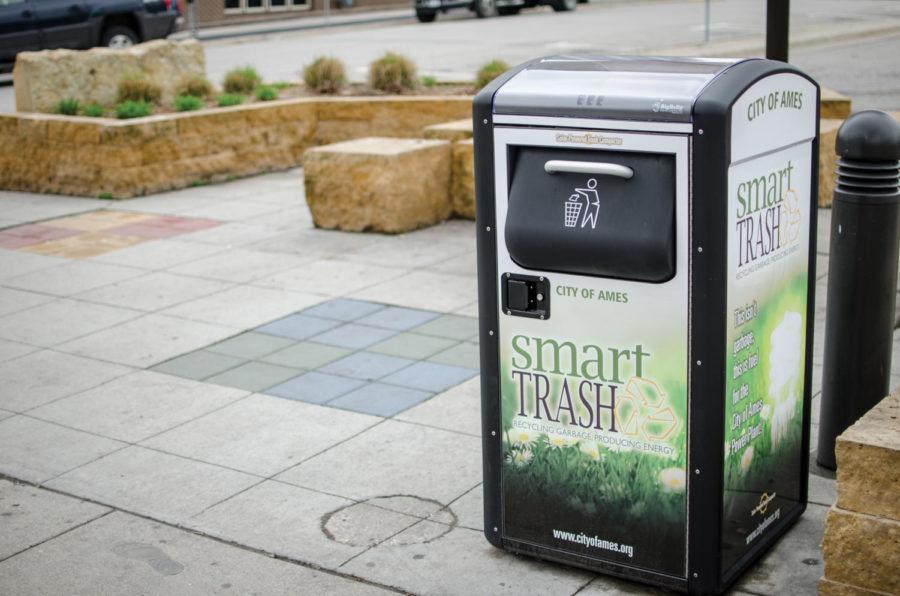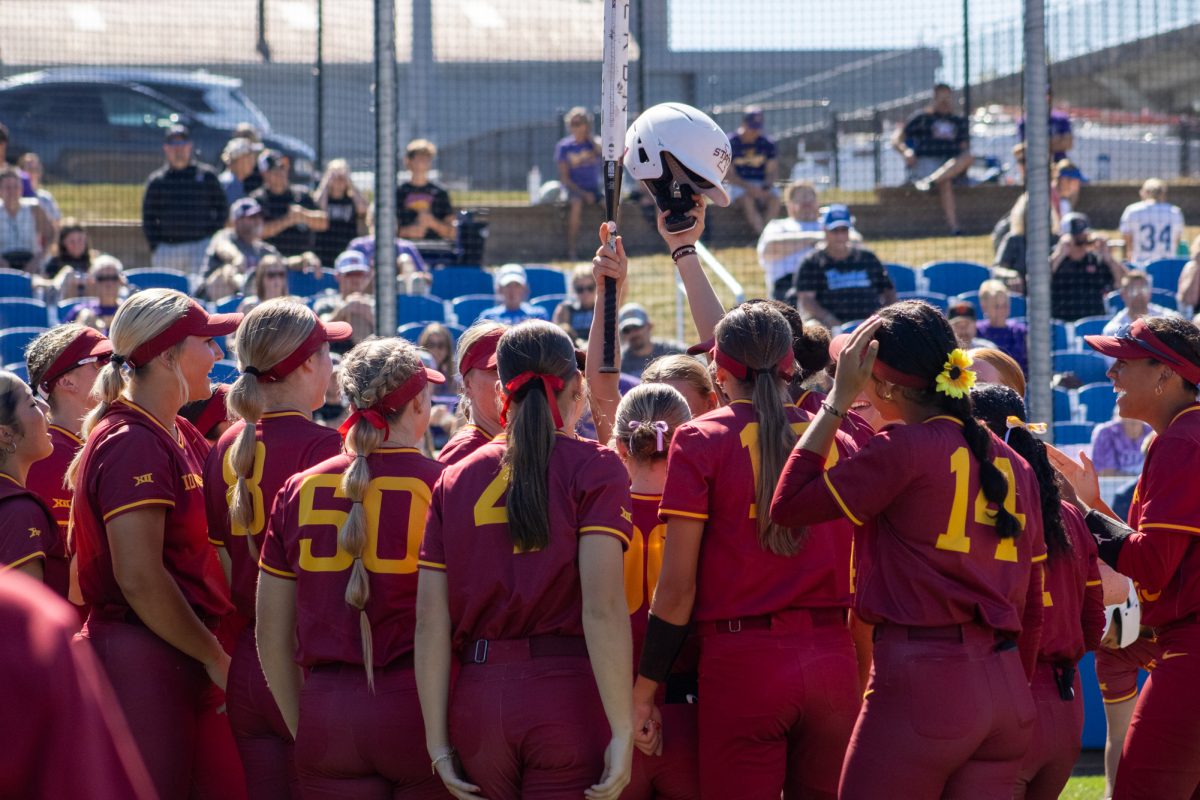Watson: Live sustainably today
Photo: David Derong/Iowa State D
The city of Ames installed BigBelly solar intelligent waste and recycling collection systems at the corner of Welch Avenue and Chamberlin Street, as well as in Tom Evans Park at Main Street and Burnett Avenue. These trash cans compact trash and wirelessly signal when they need to be emptied, cutting down on energy used in picking up the trash.
April 17, 2012
Many stereotypes and misconceptions envelope the topic of sustainability. Often written off as nothing more than the newest fad to gain popular favor, many do not realize the full implications and benefits of living sustainably.
It is time to get on board the green wagon and do your part, no matter how big or small. It is to your advantage — and easier than it seems.
Everyone can live sustainably in their own ways; it is not an all-or-nothing practice. You do not have to buy a Prius or walk everywhere, but the small things can make a big difference too.
For instance, conserving water and electricity, using fewer plastic shopping bags and keeping a reusable water bottle with you will, over time, save yourself a great deal of money and help reduce waste.
Efficiency and sustainably often fall within the same camp. Making the most of the resources provided is an important lesson for any individual or business to learn.
When budget cuts are needed, improving efficiency is one of the quickest and easiest adaptations. Ranging from the use of compact fluorescent light bulbs and motion-sensing lights to communicating more information through the Internet, changes can be made in every business setting to simultaneously reflect efficiency and sustainability.
Sustainability is defined by Merry Rankin, the ISU director of sustainability, as “a thoughtful way of living and doing business.” One of the best places to begin the quest for sustainability is to look at an issue, consider options with their potential effects, weigh the alternatives and then make the best decision based off the set of information.
A business accounting model adapted by many companies and communities to measure sustainability is called the “Triple Bottom Line.” The creator, John Elkington, found that by investing in comprehensive, interrelated facets such as “people, planet and profits,” investments ultimately ended in satisfaction of all. Successful implementation of this model finds both economic efficiency and sustainability to be the end result.
The first category of the TBL is “social,” or people, and pertains to fair treatment of employees and all subsidiaries of the business. A strong community whose needs are being met give back to the community, just as satisfied employees remain loyal to their company. When the social aspect is satisfied, they will be active in pursuing the next component of a TBL-centered business (or community), “environment,” or planet.
A realization of the environmental impact your business or community is creating is important. By keeping the ecological footprint of a community to a minimum, they are able to save more money as a natural component of practicing efficiency.
For instance, Iowa State has a program called ISU Surplus, which is a warehouse where extra desks, computers, supplies and such are taken when they are no longer needed and is then opened to the public and private sectors for commercial re-sale. Efficiency with extra supplies saves Iowa State money, which brings us to the next category of TBL, profit, or “economy.”
Happy employees work hard for their employers, and satisfied citizens give back to their community. When this medium is met, a beautiful collaboration occurs where both parties are giving as much to the other as they can for mutual beneficence and, ultimately, profit.
The TBL cycle makes a full loop at this step. To make employees or citizens feel they have the ability to give back to the environmental aspects, they must be financially in the position to do so. When one aspect of TBL falls into place, the others follow suite; it only takes a group effort.
Iowa State is doing its part to become a sustainable community as well. Between the administration, staff and students, our campus truly reflects principles of a TBL community and business.
Whereas some institutions constantly have two groups butting heads — one fighting for change and the other for tradition — Iowa State contains multiple groups all pushing for the same end results. Whether the initiatives are driven by finances or environmental betterment does not matter; over time, they are typically one in the same.
Sustainable living also can be thought of as efficient or economic living. Have a coffee mug in your apartment? Bring it to campus, save yourself 35 cents.
Have a water bottle? Bring it to campus and save 99 cents.
Live close to work? Bike and save yourself some gas money.
The pennies begin to add up over time for substantial savings, just as the would-be waste would have piled up, had it not been for a decision to live sustainably.
Be proactive, not reactive, to the environment. After all, living sustainably is not about eliminating but controlling what we consume, and doing so in a responsible manner. So do yourself a favor, save some money and do your part in conserving resources. Live sustainably.







